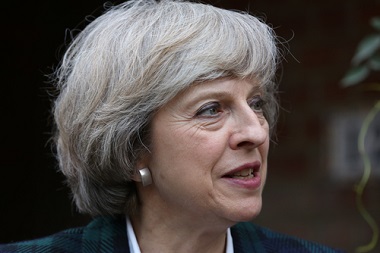Prime minister Theresa May: what’s her plan for the country?

The new prime minister has plans for employee participation on boards, gender pay and a more inclusive industrial strategy
Matt ScottTheresa May today replaces outgoing prime minister David Cameron as the UK’s prime minister.
But apart from ‘Brexit means Brexit’, what does the former home secretary have planned for her time in charge?
Firstly, May says she wants to create an economy that works for everyone, not just the privileged few. Speaking in Birmingham, May said she wanted to make boardrooms more representative of the workforce they manage and the customers they serve.
“The people who run big businesses are supposed to be accountable to outsiders, to non-executive directors, who are supposed to ask the difficult questions, think about the long-term and defend the interests of shareholders,” she said. “In practice, they are drawn from the same, narrow social and professional circles as the executive team and – as we have seen time and time again – the scrutiny they provide is just not good enough.
“We’re going to change that system – and we’re going to have not just consumers represented on company boards, but employees as well.”
CMI chief executive Ann Francke welcomed this approach, and praised May’s plans for improving the UK’s approach to conducting business.
“We back the new prime minister’s pledge to make business fairer and work for the many, not the few,” she said. “This will place a greater onus on employers to create more inclusive workplaces, tackle stubborn problems like the gender pay gap and confront excessive executive high pay.
“We’ll work with government, leaders and managers to make social purpose in business a priority that delivers benefits for all.”
Part of May’s plan for an inclusive economy is to focus on productivity, a long-standing economic problem that, if addressed, will drive real change for both businesses and workers.
“If we want to increase our overall prosperity, if we want more people to share in that prosperity, if we want bigger real wages for people, if we want more opportunities for young people to get on, we have to improve the productivity of our economy,” she said. “Yet we have long had a problem with productivity in Britain. So I want to make its improvement an important objective for the Treasury.”
Prime minister May appears ready to take a broader approach to how the economy interacts with society, and embrace elements of an industrial strategy.
“I want to see an energy policy that emphasises the reliability of supply and lower costs for users; a better research and development policy that helps firms to make the right investment decisions; more Treasury-backed project bonds for new infrastructure projects; more house building; a proper industrial strategy to get the whole economy firing; and a plan to help not one or even two of our great regional cities but every single one of them.”
Leaders of the UK’s biggest businesses also seem ready to embrace change. Sir Mike Rake, the chairman of BT and Worldpay, has said that the recent EU referendum could mean that UK businesses must now more be more open to a new direction.
“If you’d asked me 18 months ago I would have said business leaders were not at all receptive but there is now a huge awareness among people I speak to, who are mainly in the FTSE 100, that we need to do something about this gap,” he said. “It was shown in stereophonic sound in the referendum that there is a lack of trust in the establishment, politicians and business.”
On greater employee participation in boardrooms, Joe Kaeser, chief executive of the German engineering multinational Siemens, told The Guardian that any changes regarding employee representation needed to be properly managed to succeed.
“In Germany [where the Siemens supervisory board consists of 50% employee representatives], we’ve seen companies where workers’ representatives thought they co-managed the company – that obviously is a bit too much ... You need to get used to it but if it’s being practised well it has its benefits,” he said.
“A board member needs to act in the best interests of [his or her] company no matter which region they are from. So if you have workers’ representatives that are hypothetically from the UK, they also need to act in the best interests of the company if [the issue] is about job cuts in the UK and creating new jobs in China because demand has shifted. This typically puts quite a strain on the workers’ representatives.”
The new prime minister is also keen to crack down on high executive pay and corporate irresponsibility.
“Executive pay has more than trebled [over the last 18 years] and there is an irrational, unhealthy and growing gap between what these companies pay their workers and what they pay their bosses,” she said. “So as part of the changes I want to make to corporate governance, I want to make shareholder votes on corporate pay not just advisory but binding. I want to see more transparency, including the full disclosure of bonus targets and the publication of “pay multiple” data: that is, the ratio between the CEO’s pay and the average company worker’s pay.
“And I want to simplify the way bonuses are paid so that the bosses’ incentives are better aligned with the long-term interests of the company and its shareholders.”
This, of course, is very much in tune with the annual findings of the CMI/XpertHR National Management Salary Survey.
Check out the upcoming edition of Professional Manager for how to build an inclusive workforce, inspirational performance management and much more

Press & Media Enquiries
For more information or to request interviews, contact CMI's Press Team on 020 7421 2705 or email press.office@managers.org.uk


